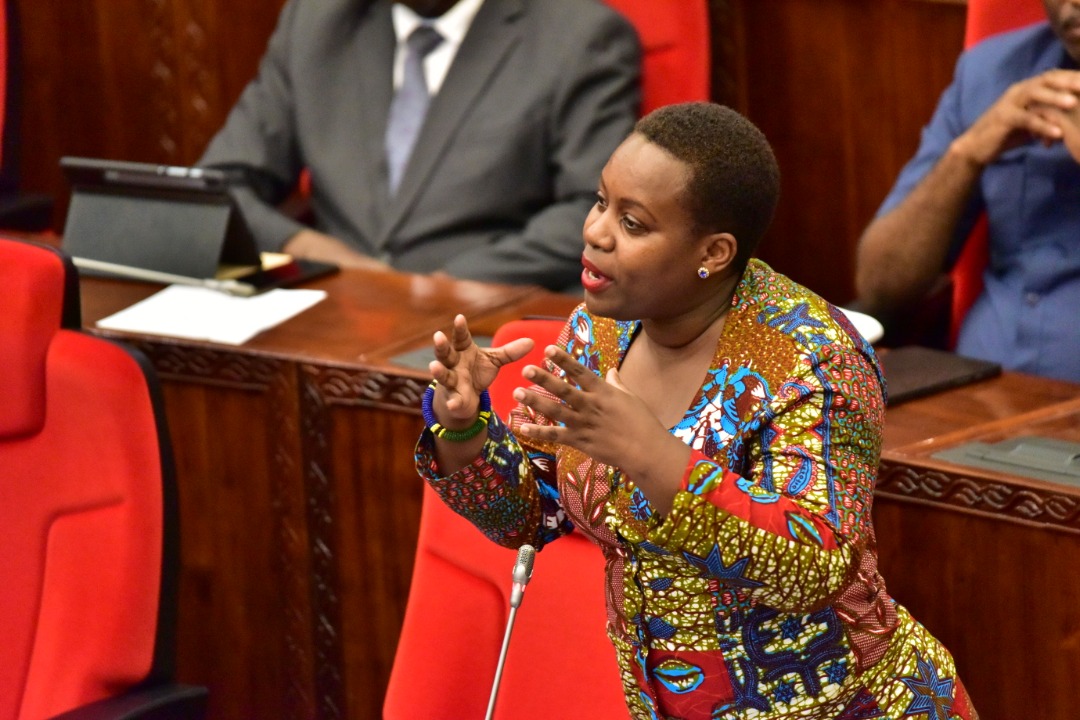
Special seats MP representing NGOs, Neema Lugangira speaking in Parliament. PHOTO| FILE
This happened in our very own United Republic of Tanzania. A lawyer, employed by a high-flying Tanzanian law firm, name withheld, wrote a legal opinion that was so
outrageous in terms of content and, unfortunately so, prose, that the client, an international NGO official, wondered aloud why his employer was paying the supposedly reputable reasonable money in dollars every month, as a retainer.Not long ago, this government officer who was pursuing his Master’s of Laws degree at one of our reputable universities confessed that the tutelage our law students are undergoing is still based on the 1970’s and that, graduates come out of Law School when they have not matured enough technically to get into practice. Talk of self-confession.
Events like these above tend to come back to us, when the social media network often threatens to break down as a consequence of a foreign organization (as was the case last week), getting some work to do, on behalf of the government of the United Republic of Tanzania. Yet, I have met young graduates from our Universities whose passion, argumentation and clarity of presentation, gives me hope that the future of the profession I dropped (story of another day) may, after all, be bright.
This was the case last week when it turns out a foreign law firm has been contracted to act on behalf of Tanzania and Tanzanians, in the LNG gas projects we are about to enter into. More often than not, the noise is made worse by the amount of ignorance that leaves one wondering whether, indeed, schooling removed the wool from our eyes or, we merely ticked the attendance boxes.
The good thing is, a comment by Ex-MP John Heche brought Ms Neema Lugangira, herself an MP and a local expert on Local Content, to the defence (rightly) of the government. While Mr Heche wondered by money was being spent on a foreign law firm, Ms Lugangira responded calmly and I might add, intelligently.
The point is not to go into the details of the claim versus the response. No one is against Tanzanian’s being in the engine room of their country’s economy. That would be an absurdity.
However, we must as a country decide where to draw the line between blind nationalism and professionalism and which is the kind of point being raised when the Government of the United Republic of Tanzania makes a decision that Baker Botts be the advisory Law Firm.
As Ms Lugangira put it on record, the foreign law firm will be back stopped by a local law firm. These things are extremely important and raw, rabid nationalism has no place in these sorts of negotiations and agreements. If anything, it is quite in the interest of the nation to pay mega bucks for someone who will drive and ensure our best interests are looked at even if that is costing an arm and a leg.
Let us look around us and see how others have done it. New York City is populated by nearly 25% immigrants. Some of the most iconic sights of the city were designed and built by migrants. The economy of New York City is dominated by migrants who also constitute 40% of the labour. Does the United States benefit from that economic boom? The answer is it does. Ben Verwaaynen was CEO of British Telcom from 2003 to 2013. He is credited with the greatest revolution and financial turnaround ever. Yet the man was Dutch. Did that affect his ability to deliver benefit on behalf of shareholders never.
On Thursday 27.01.2021 this Newspaper Group was hosting a debate on bridging the digital divide. One of the ways to bridge the digital divide is not to divide Tanzania from the collaborations that it can achieve with non-Tanzanians under the guise of unbridled nationalism.
The monies, opportunities and benefits for bridging the digital divide exist beyond our traditional silos. In those silos, we use legal means to stop ideas. Lagos, Nairobi, Johannesburg are the 3 top countries attracting funds that are assisting bridge the digital divide. They do that because they have an ease of doing business approach to engaging international community.





No comments :
Post a Comment